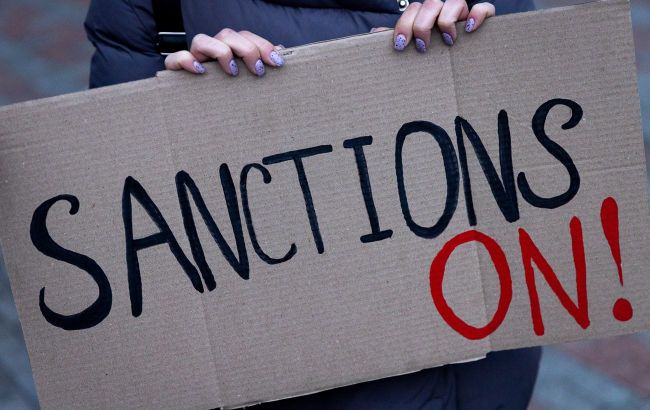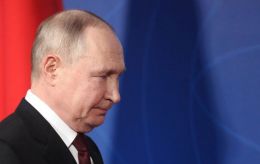Lithuania keeps sanctions on Belarus and Russia despite US pressure
 Sanctions against Russia (Illustrative photo: Getty Images)
Sanctions against Russia (Illustrative photo: Getty Images)
Lithuania stated that it remains steadfast on sanctions against Belarus and Russia and will not lift the ban on fertilizer transit, even amid possible US pressure, states the head of the Lithuanian government, Ingrida Šimonytė.
On Friday, September 12, Lithuanian Prime Minister Ingrida Šimonytė said that sanctions pressure on Russia and Belarus should not be reduced but increased. According to her, Vilnius will remain unwavering on the transit of Belarusian potash fertilizers, even if the US exerts pressure on this matter.
“If we do not continue to push for sanctions and a tough approach toward the aggressor, it will be bad. The US may exert pressure, but I believe we are steadfast here,” Šimonytė said.
Ingrida Šimonytė emphasized that she does not support the idea of easing sanctions on Belarus and Russia and believes that the next sanctions package should be even tougher.
When asked about a possible link between sanctions policy and negotiations with the US regarding the continued presence of American troops in Lithuania, Šimonytė said, “Certainly, that could be discussed.”
What is known about the lifting of sanctions on Belarus
The statement by the Lithuanian prime minister came amid recent diplomatic developments in Washington-Minsk relations.
On September 11, US Deputy Special Envoy John Cole, during a meeting with Alexander Lukashenko in Minsk, confirmed the lifting of sanctions on the Belarusian airline Belavia.
At the same time, Lukashenko previously stated that his main goal remains the removal of US restrictions on the export of Belarusian potash fertilizers. The shortest route for their export passes through the Lithuanian port of Klaipeda, but this transit is blocked by EU sanctions.
Lithuania consistently advocates for maintaining these sanctions, emphasizing that economic pressure on Minsk and Moscow remains a key tool to influence the aggressors.
EU sanctions on Russia
The EU has already approved 18 sanctions packages against Russia following the full-scale invasion of Ukraine in 2022 and is working on the 19th package of measures.
It is known that the European Commission is preparing to present the 19th sanctions package against Russia on Wednesday, September 17.
However, recently, Hungary has begun to obstruct the automatic extension of sanctions, after Prime Minister Viktor Orbán felt support from US President Donald Trump.
It should be noted that the EU estimates Moscow’s losses from international sanctions at $450 billion since 2022.

